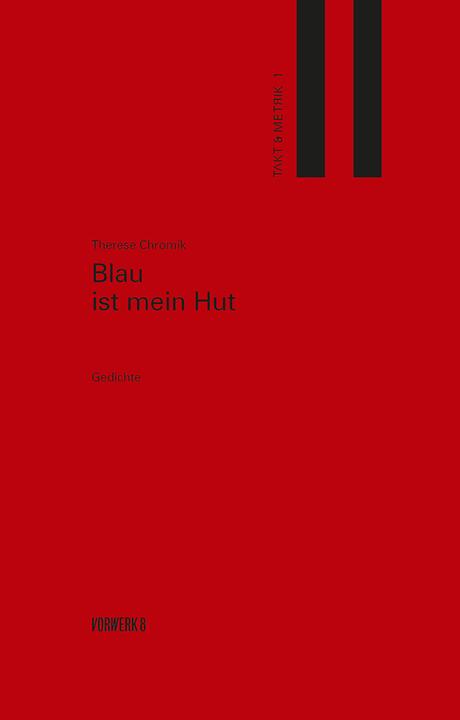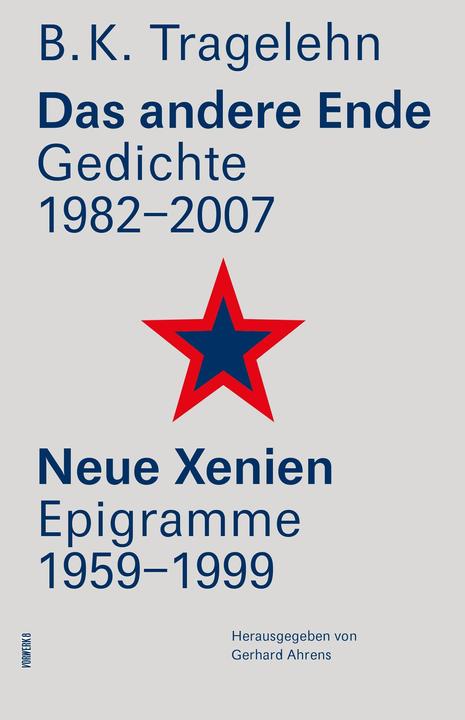
Best Vorwerk 8 products in the Fiction category
On this page you'll find a ranking of the best Vorwerk 8 products in this category. To give you a quick overview, we've already ranked the most important information about the products for you.
1. The other end
A Poetic Chronicle of HistoryThis edition collects the poems and poem-translations of B. K. Tragelehn in three volumes. For forty years, from 1957 to 1997, he directed plays at many German theatres (first in the GDR, and since 1987, after several professional bans, also in the FRG), often plays by Shakespeare and other authors of his time, which he translated himself, plays by Molière, which he translated together with U. Ludvik, as well as plays by Heiner Müller, whose friend he was, and by Brecht, whose student he was. Thus many poems are connected with theatre work, e.g. dedicated to actors. The collection of poems from 1956-1982, the first volume, could only be published in Frankfurt am Main. Almost nothing had been printed in the GDR. The second volume collects the poems from 1982-2007. The third volume collects all translations: from ancient poets like Ovid to Giordano Bruno to Adam Mickievicz [according to interlinear versions] and to poets of the 20th century like W. H. Auden and W. C. Williams. The whole is a personal chronicle of the history of the 20th century in its second half. The editor Gerhard Ahrens helps with notes across the thresholds of East and West and of time gaps. "One will be able to use these poems, which come from afar, for a long time to come. "Martin Zingg on "NÖSPL", Basler Zeitung, 07.08.1982 "... Enlightenment as recollection and where this remains blind, new development, step by step, into the realm that the poem has set itself the task of opening up. I consider this volume of Tragelehn's poems to be exemplary. "Helmut Heissenbüttel, Süddeutsche Zeitung, 14/15.08.1982.

2. Be embraced
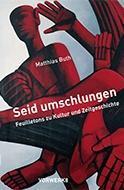
3. Literary Neighbourhoods
Writers are first and foremost readers, especially when they start writing, as J.M. Coetzee says. It is not only influence and example that are important, but rather an indefinable "gut feeling" with which linguistic, factual and cultural neighbourhoods of writing emerge, as inclination, desire and not infrequently obsession. The literary experience that is influential for the present text sometimes presents itself, as Jeffrey Eugenides suggests, as the ghostwriting of an understanding literary past, e.g. that of Franz Kafka, Samuel Beckett or Thomas Bernhard. But a sphere of neighbourliness and intertextual understanding also reinforces contemporary writing, its sense of reality, its poetic power and its order of thought. The literary ones are creative in rewriting and overwriting: in a kind of architecture of productive encounter and negotiation with the predecessors and models. With original contributions by Brigitte Kronauer, Reinhard Jirgl, Lutz Seiler, Colm Toibin and Vladimir Sorokin, commented by Lothar Mu¿ller and Klaus Scherpe, pictorial presentation of Max Wechsler's "material neighbourhoods" by Elisabeth Wagner.
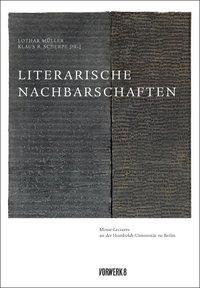
4. The edge of the earth is filled with desire
Sixty-six poems from around the world, selected by guests of the International Literature Festival Berlin - an extraordinary and personal collection of texts, many of which are appearing in German for the first time. All poems are available in the original language and in German translation. Poems by, among others, Juri Andruchowytsch, Israel Bar Kohav, Gottfried Benn, Elizabeth Bishop, Jorge Luis Borges, Wladislaw Chodassevich, Robert Creeley, Louis-Philippe Dalembert, João Cabral de Melo Neto, and Lidija Dimkovska.
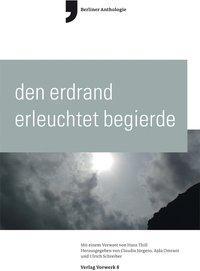
5. Eine Malerdynastie aus dem Rheinland - die Familie Sohn-Rethel
A dynasty of painters from the Rhineland - the Sohn-Rethel family: a biography.
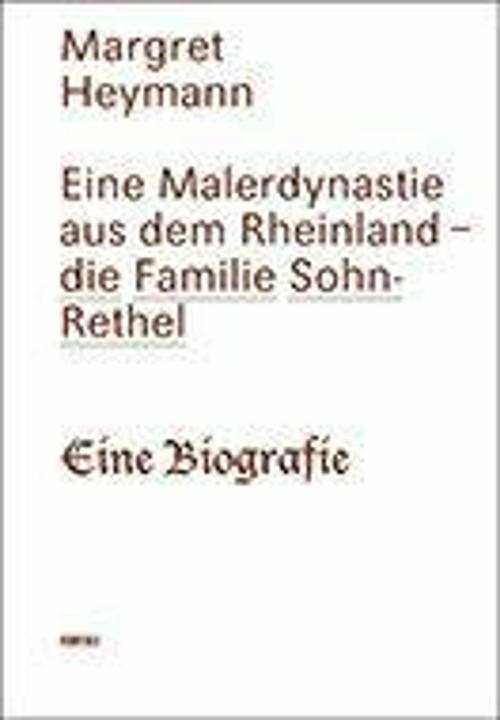
Eine Malerdynastie aus dem Rheinland - die Familie Sohn-Rethel
German, Margret Heymann, 2024
6. Teilweise Musil
"Partially Musil" is a significant novel by Burkhardt Wolf that explores the complex themes of identity and societal structures in the period leading up to World War I. The author employs the character of Robert Musil to illuminate the contradictions and challenges of society at that time. The novel addresses the improbability of the old world’s survival and the role of the Austro-Hungarian administration, which maintains the bureaucratic structure and dynamics of the administrative construct "Kakanien." Musil's narrative is marked by a profound understanding of the political and social upheavals of his time, manifesting in a double paradox. The story is constantly in search of meaning and significance in a world undergoing transformation. This literary engagement with these themes makes "Partially Musil" an important work of fiction that raises both historical and philosophical questions.
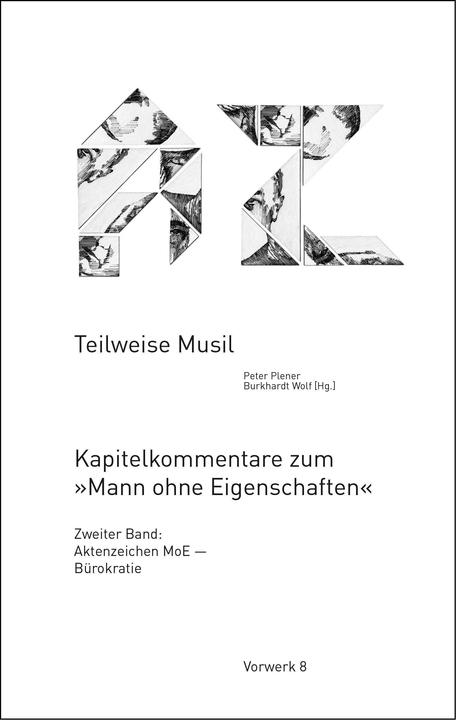
7. Bilderkunde
The artist, curator, and author Andreas Seltzer is also a collector—not only of artistic and everyday curious objects, but also of observations that he has collected and written down on his way out of his Berlin studio flat. The peculiarity of his finds lies in the paths he takes: they are marginal paths that always lead him to border areas, to something that somehow doesn't fit and doesn't quite add up—at least reaching obliquely into the usual view of things. Thus, he discovers a multitude of Berlin places that no travel guide lists: for example, a Catholic pilgrimage site in the midst of the Potsdamer Strasse diaspora, the attic find from the Berlin Artothek of the Soziale Kunstförderung—a collection of works of visual art commissioned by the West Berlin Senate to promote visual artists, then forgotten by the administration itself—or the Tempelhof Police History Collection, where a dessert fork no longer evokes a desire for cake, to Joe Bernard's Neukölln magic shop, whose magic trick courses are also in demand from pickpockets. There are also portraits of a child's room in the Barbie look, the flat of a rubber lover, a banal DIY store, and a Globetrotter branch. Seltzer's theme is always the intentional or unintentional surreal arrangement of things in the grey zone between art, everyday life, and the pathologies that sometimes correspond to them: it is about images of real surrealities. The photo connoisseur Seltzer also portrays luminaries of this craft, such as the Indian photographer E.S. Curtis, the press photographer Erich Salomon, and the obscure world of ghost photos.
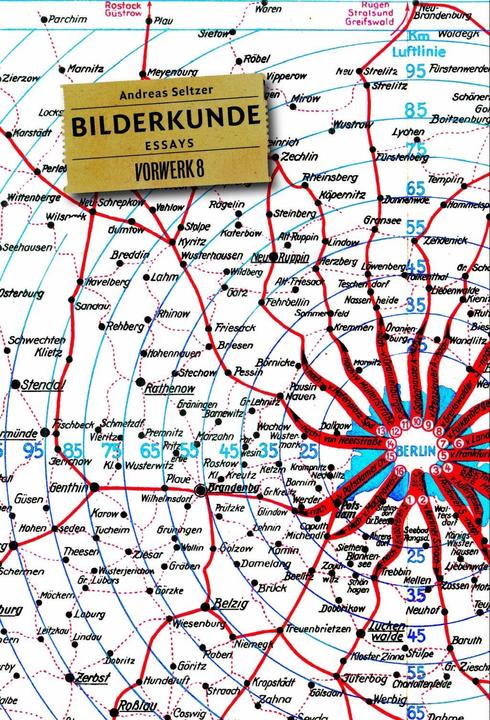
8. Tableaux vivants
Photographs and photograms are traces of light that have been deposited on silver bromide - one by means of the eyepiece of a mobile black box on film, the other as direct exposures of objects on photographic paper. What they both have in common is the immobilisation and temporalisation of time. Go¿rtz's "photograms" - as she calls her prose pieces - behave in the opposite way, like reversal films. They are written images. The short prose pieces range from minimising the narrated time to zero to superimpositions of a 24-hour day with its wandering shadows, changes of light and events from morning light to midday.from a Sudanese landscape, a country lane in Germany, a Lisbon street or a refugee camp in Uganda. Go¿rtz's "photograms" are narrated tableaux vivants and also literary short-time exposures of a much-travelled person whose eyes do not want to replace the photographic camera, but simply flood it with narration. Her prose, precisely because it does not lay claim to the >objectivity< of a camera-protected reportage, brings us all the more into contact with what is otherwise hidden, regardless of whether our gaze falls on it geographically far away or on our doorstep.
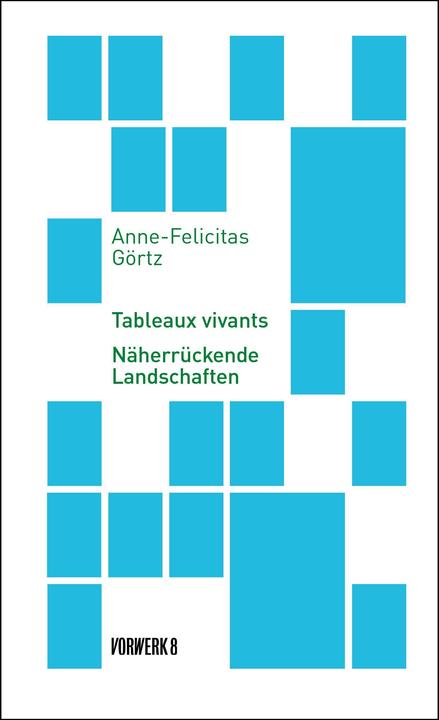
9. Michael Rom - does not want to join the big-eared elephants
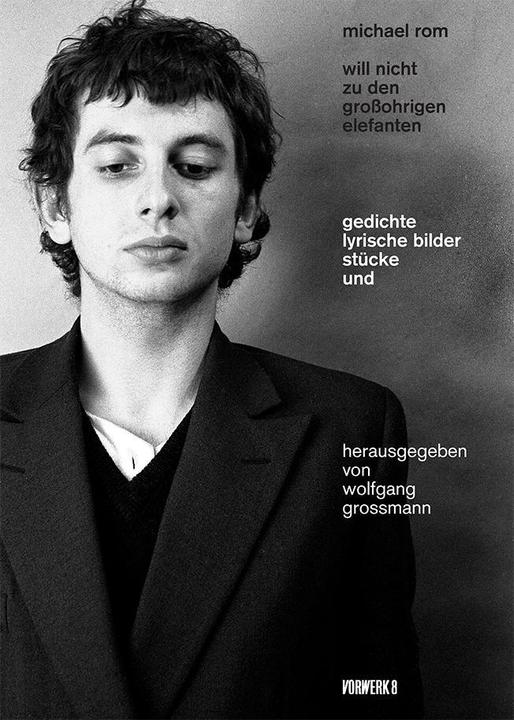
Michael Rom - does not want to join the big-eared elephants
German, Michael Rome, 2018
10. Blue is my hat
The language of Therese Chromik's poems is transparent and clear. It does not pose any riddles to the readers and yet is full of poetic beauty. Writing poetry is a craft. The lyricist has mastered it, educated in the long process of writing, trained in the work of poetic traditions. Poetry is a work of the mind. Her poetry is highly reflective. Thoughtful, scrutinised, not a word too much, not a word too little, often pure essence. Poetry is heart work. Poems that are to endure must trigger emotions. Only then do they reach us and stick. Therese Chromik's poems fulfil this requirement. This predominant triad clearly sets her work apart from the everyday hustle and bustle of published utilitarian and consumer poetry.Chromik's poetic cosmos lies open an offer in profusion: feelings, certainties, insights, questions, dares, ascents and descents, truths and possibilities. Readers are invited to discover it. Perhaps they will find poems in it that speak to them, touch them, accompany them - perhaps for a long time.
